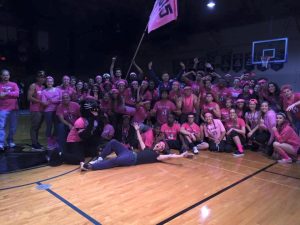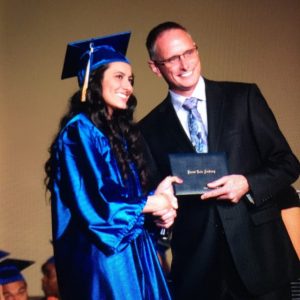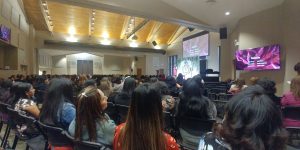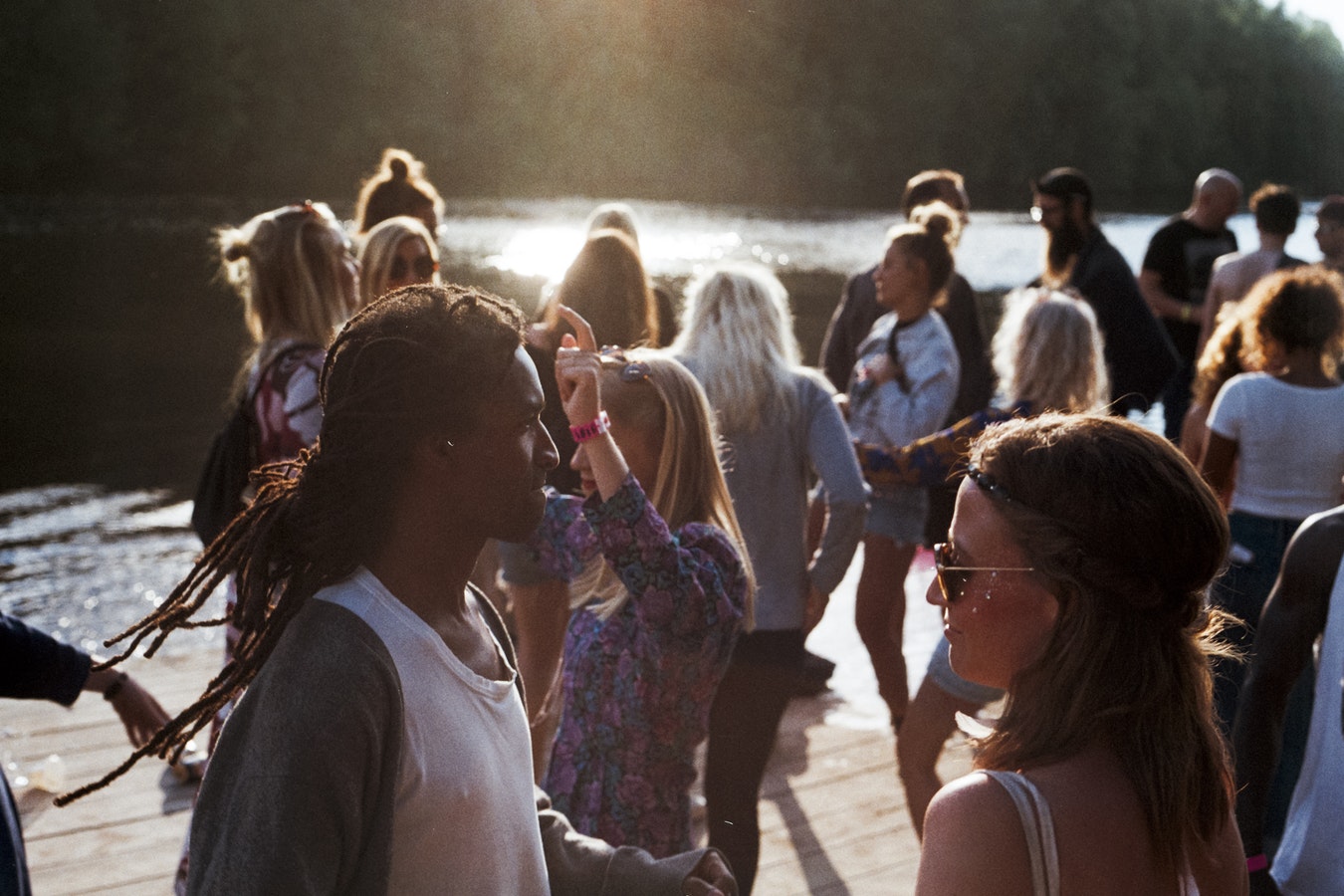Last November, the Latin American Club of Southern Adventist University (SAU) invited Willy Ramos, better known as the “Ghetto Preacher,” to share his testimony during some of SAU’s worship services. I remember sitting that Friday evening in the pews and seeing Ramos walk on stage.
He wore a black leather vest and some dark shades. There were chains attached to his clothing and a big silver cross pendant pinned to his shirt. To me, he looked like a wannabe-rapper, and the first thing that popped into my mind was, why is he here?
I did not think someone with a “gangsta” look could help my spiritual life in any way. Within a few seconds, however, I realized how wrong those thoughts were. I realized that judging someone like that is not correct. And even though I reprimanded myself within a short time, where did those thoughts come from?
I realized that judging someone like that is not correct. And even though I reprimanded myself within a short time, where did those thoughts come from?
Unconscious bias, also referred to as implicit bias, is an involuntary response towards a situation or person based on previous experiences, cultures, attitudes and background. We put individuals in boxes and act accordingly based on their gender, age, race, as well as what they do for a living, what they wear and many other characteristics.
According to an article by Forbes, there are over 150 forms of unconscious bias. Three of the most common ones are affinity bias, performance bias and confirmation bias. The first one refers to the phenomenon that happens when individuals tend to like or favor people who are most like them. The second means that “we judge the ‘ingroup’ based on potential, and the ‘outgroup’ based on performance.” Finally, confirmation bias means that one is actively seeking proof and easily accepting evidence that might back up that already-made assumption.
Many people may feel that they have escaped this way of thinking, but the truth is that unconscious bias is simply repressed prejudice – and most people are guilty of it, according to experts. Everyone has his or her own culture, background and experiences that lead them to think, even if it is for just a moment, a certain kind of way. The question that remains now is: How can this implicit bias affect a church? To answer this question I will go back to my first illustration and compare it with the three most common forms of unconscious bias.
Many people may feel that they have escaped this way of thinking, but the truth is that unconscious bias is simply repressed prejudice – and most people are guilty of it.
Ramos had never done anything to me. He had never offended me; he had never hurt me; we had never even spoken. Yet, the moment I saw him walk on stage my mind was clouded with prejudice. Why? Because he did not look like me and did not look the way most people in the church looked. I was overcomed by affinity bias. He was not wearing a suit or dress shoes. He did not have a tie or a white collar shirt. His look was like that of someone off the street, not someone on the pulpit. He simply did not fit in.
I think this is a common problem with the church. We speak of preaching the message and loving our neighbor but we judge when our neighbor comes from a different “neighborhood.” Maybe we do not discriminate directly based on race, but we discriminate about makeup, tattoos, marriage status, political views, etc. We do not like it when others do not act the way we act or look the way we look. On the outside, we are smiling and shaking hands. But on the inside, we are examining from head to toe.
When Ramos walked on stage, it was obvious that he was not your usual preacher. He did not look the role; and unless he proved himself, I was not going to give him the part. Yet, there have been times when other well-dressed-holding-Bible-in-hand pastors have appeared on the platform and I got ready to hang them the oscar even before they had gotten the chance to act. This is performance bias. Those who fit the “ideal preacher” image received my full attention, but those who did not show those “characteristics” only received partial listening until I could decide they could “play the role” too.
How many times have you observed that same phenomenon in the church? How many times have you found yourself guilty of the same reasoning? Sometimes people in the church categorize others based on in-groups and out-groups; those who fit the role and those who don’t.
“She is the pastor’s wife?! Why does she wear so much makeup?”
“I do not know about her, she was baptized two months ago but still wears her skirts so short.”
Too often in the church, if someone does not fit the stereotype then we mentally require them to prove their worthiness.
Sometimes people in the church categorize others based on in-groups and out-groups; those who fit the role and those who don’t.
The hard thing about unconscious bias is that we do not realize it is there until it reveals itself (note that you cannot unhide it, you just recognize it after it comes out). Sometimes rather than addressing this bias problem, we try to make it seem “less problematic.”
If we can find “actual proof” for that repressed prejudice that just popped into our minds, then it means we had a legit reason to feel the way we did. It means that we are not such horrible human beings after all. As I realized the error in my thoughts, I found myself paying close attention to Ramos’ vocabulary and expressions. In a way I wanted him to say a word I knew was wrong or make a connotation I knew was inappropriate for a church setting because then my unconscious bias could have been justified. I was turning from affinity bias and performance bias towards confirmation bias.
However, no bias is acceptable. All biases cause the same level of harm. If the church is free from affinity or performance bias but is still chained to confirmation bias, then we we are still slaves to prejudice. If we are looking at the actions of our neighbors, watching their vocabulary, appearance, friendships, etc., expecting to find faults, then we are but captives to hatred, discrimination and injustice seen everywhere in the world.
Humans are all guilty of unconscious bias. It is a poison in everyone’s mind and this poison has even intoxicated the church. Just because it is there, however, does not mean that we have to welcome it.
When I realized how wrong my thoughts towards the Ghetto Preacher were, then I knew I had to clean up of my mind. The church needs to do the same thing. It is not always easy but it is necessary if we are trying to live a life like Jesus. It is time we get rid of this poison called unconscious bias and clear the cloud of prejudice.
Just because it is there… does not mean that we have to welcome it.

Loading ...

Loading ...

Loading ...
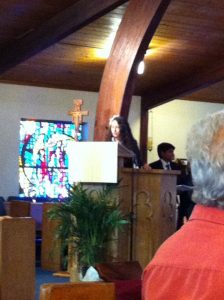 In the second-grade, I was in a multi-grade class with a teacher who was also the principal. It was tough for me to comprehend what she was teaching half of the time due to the distractions.
In the second-grade, I was in a multi-grade class with a teacher who was also the principal. It was tough for me to comprehend what she was teaching half of the time due to the distractions.

